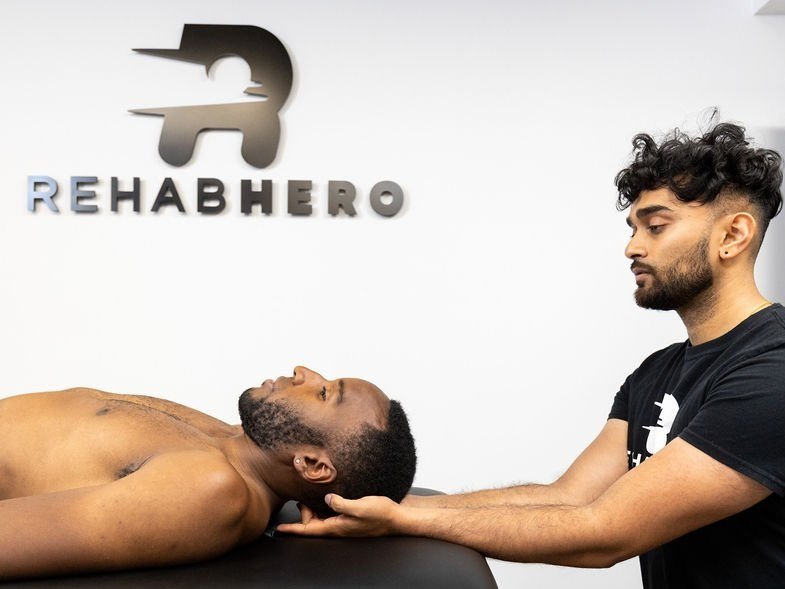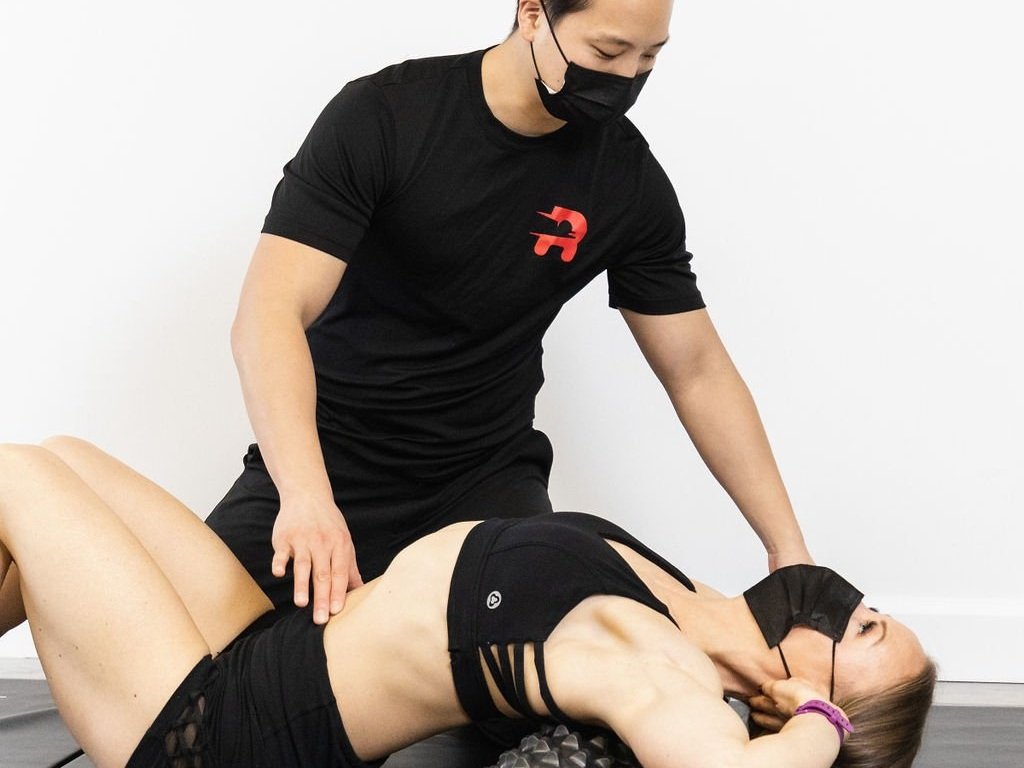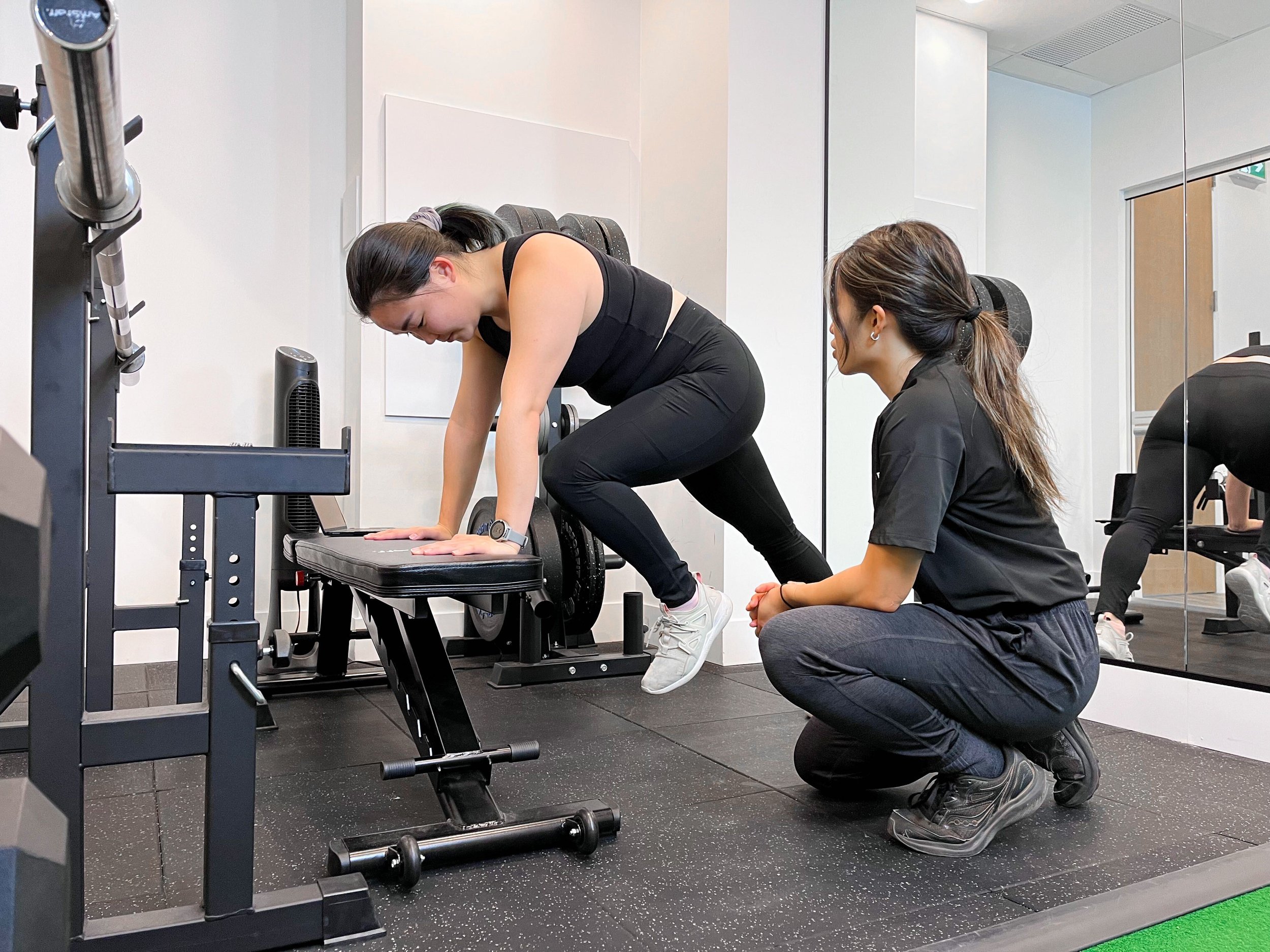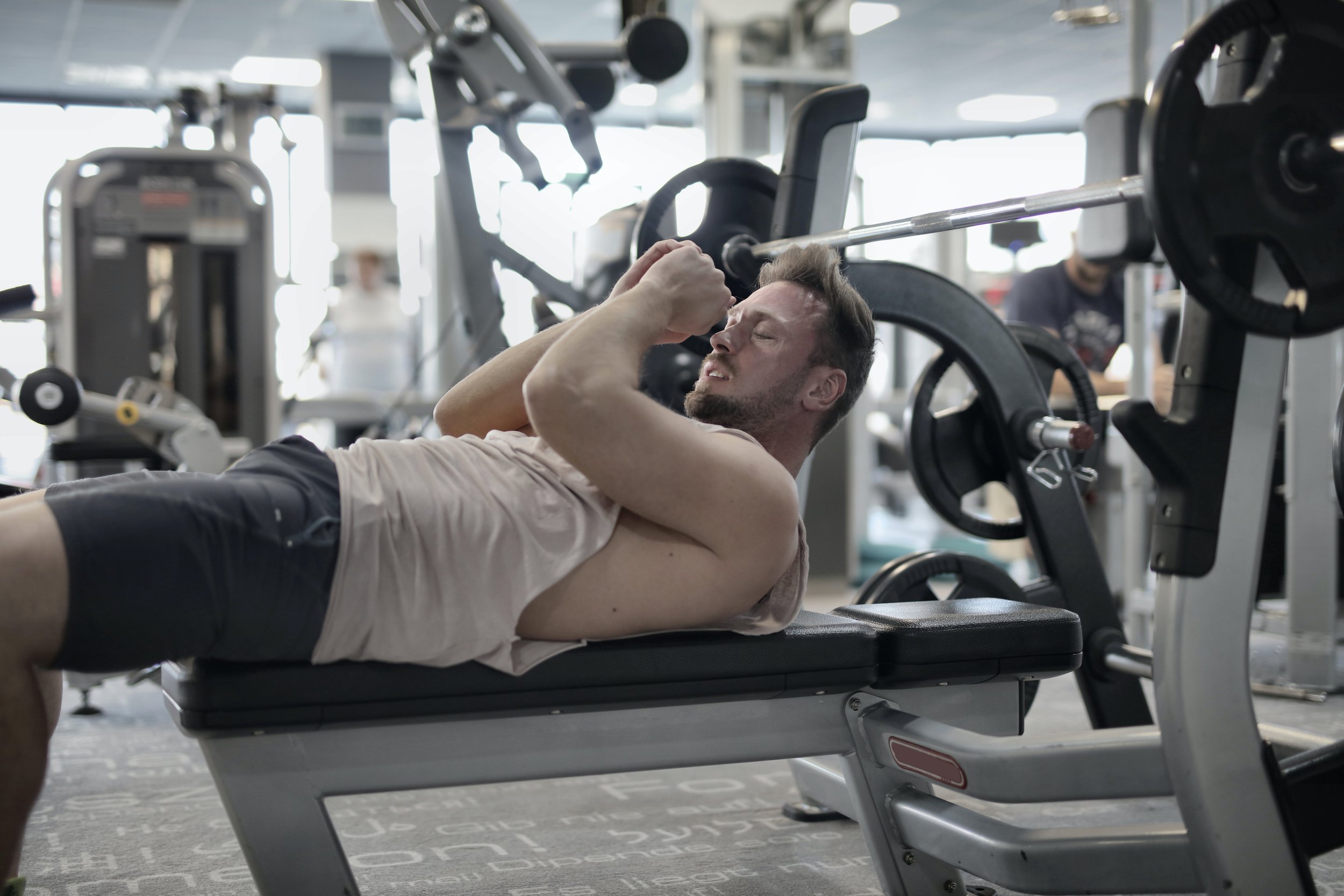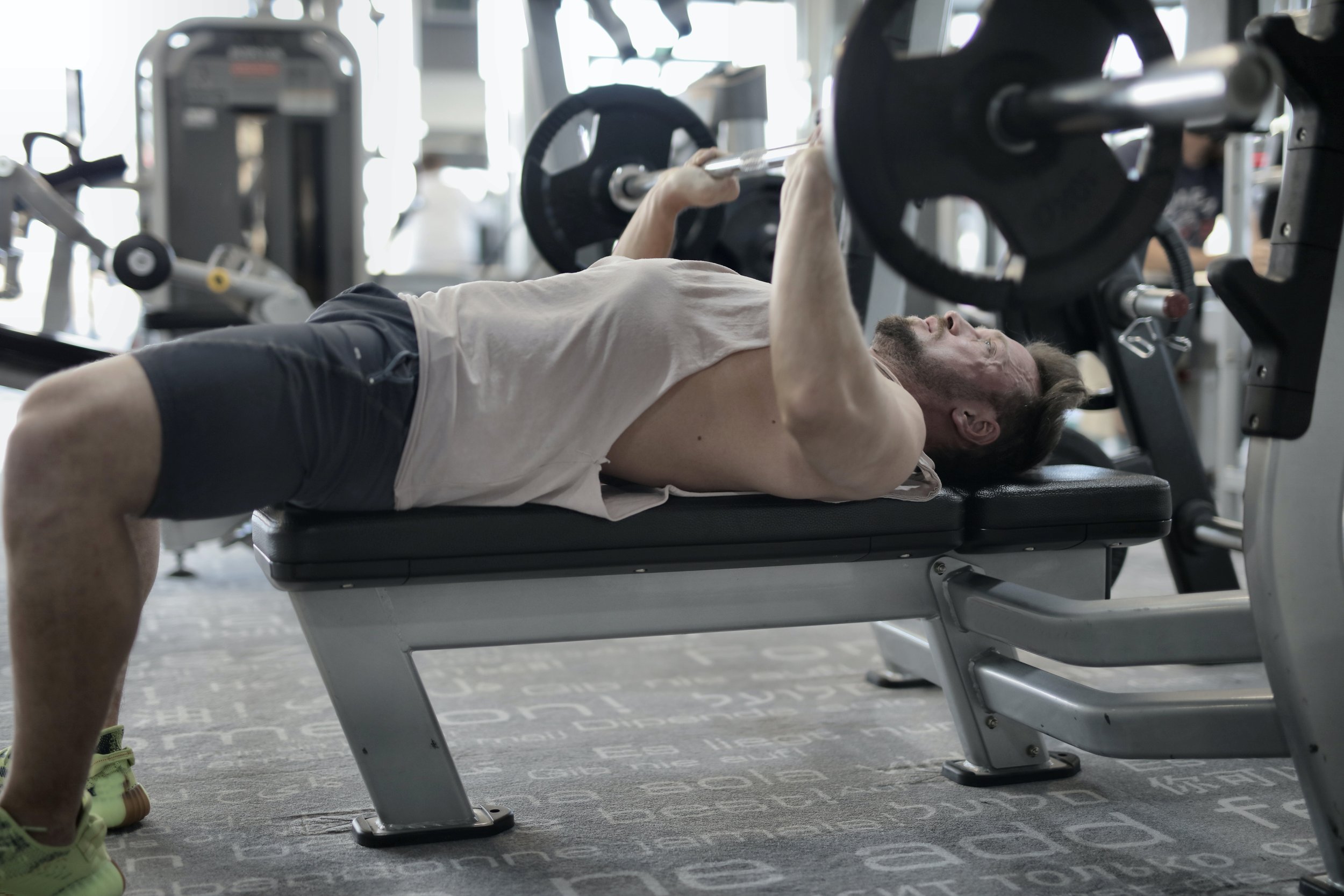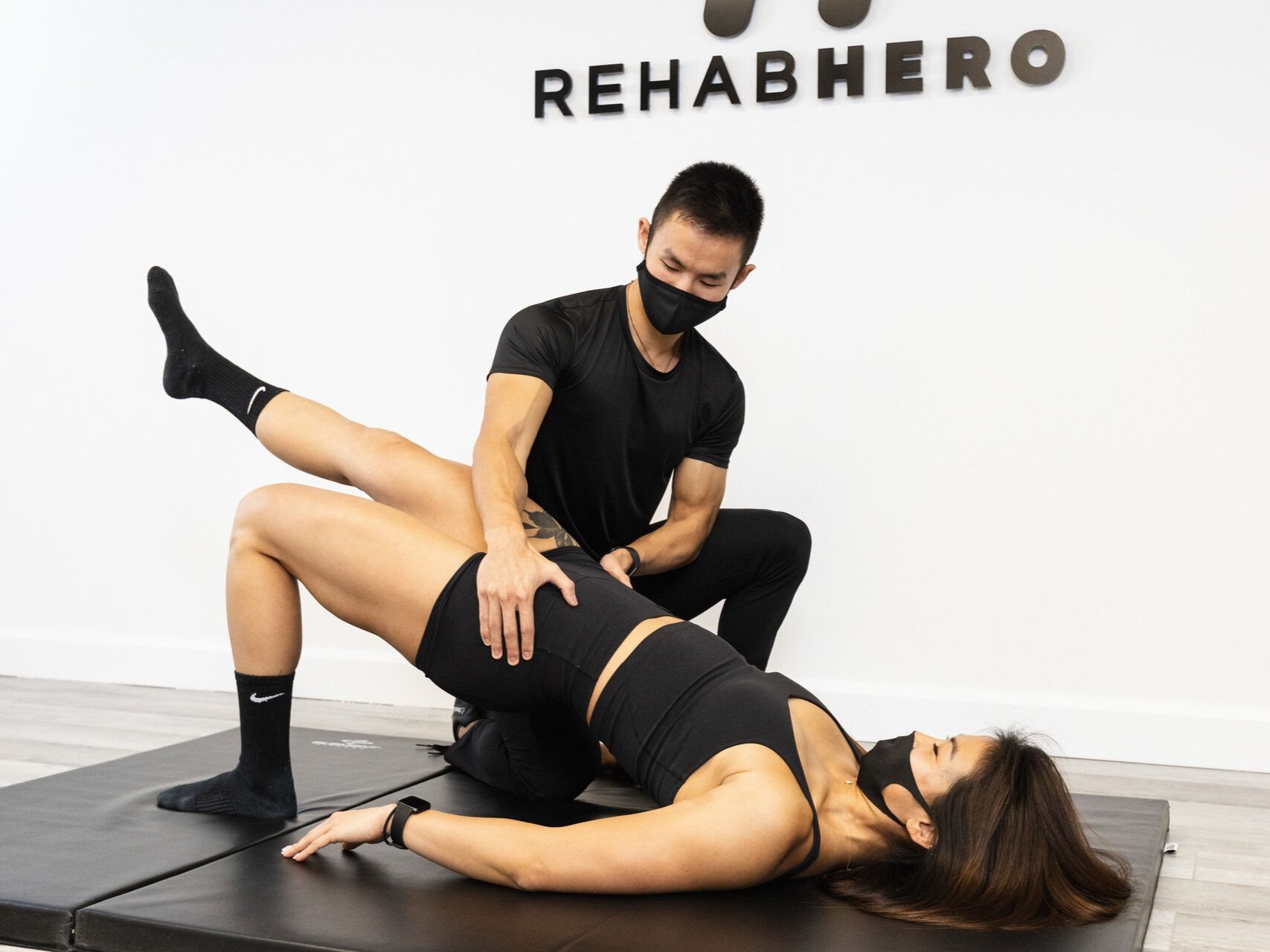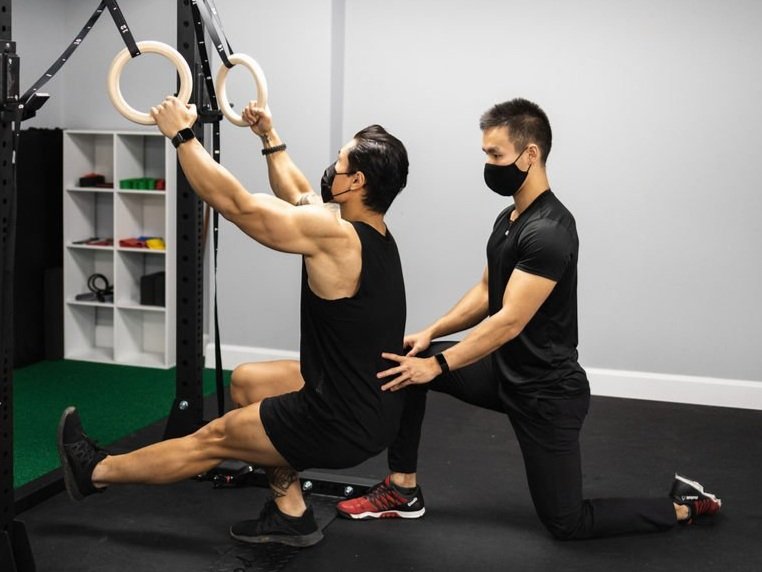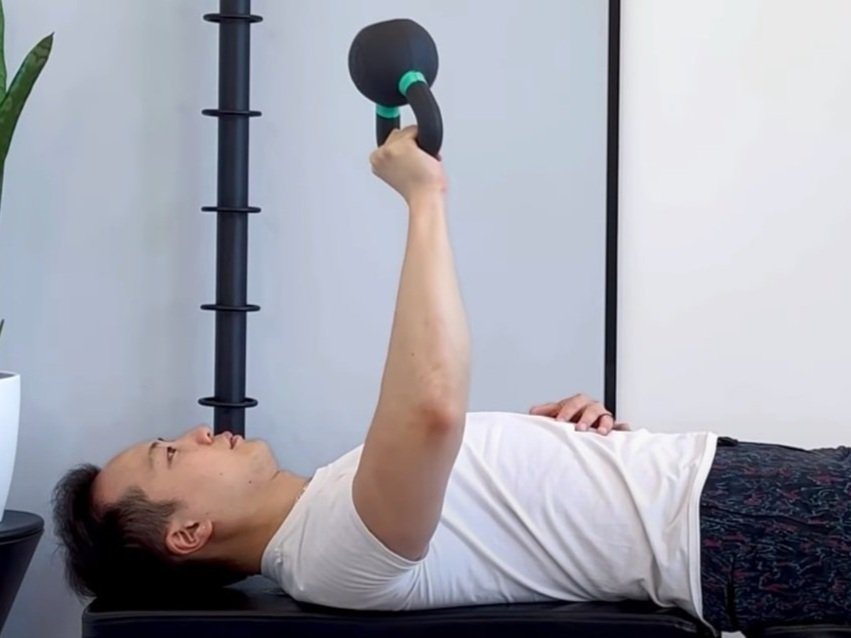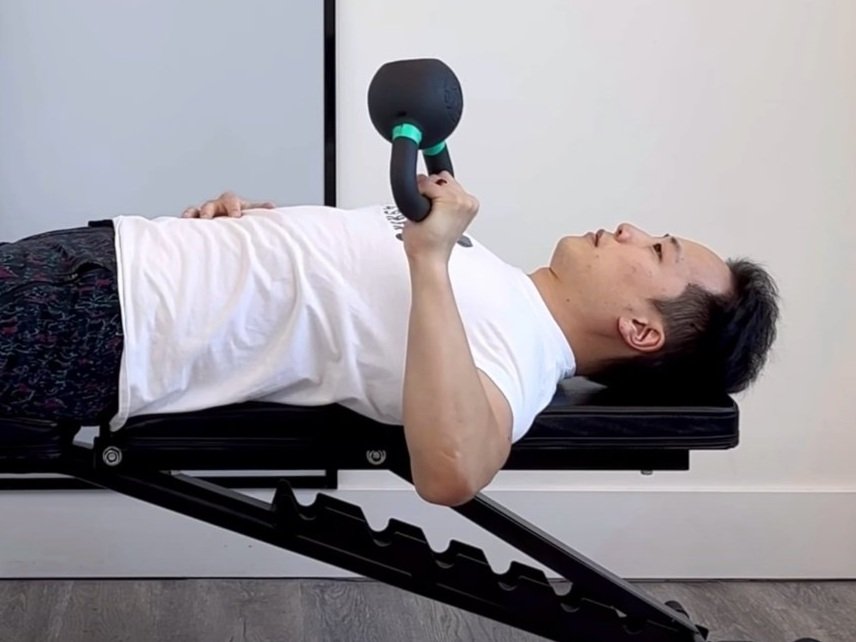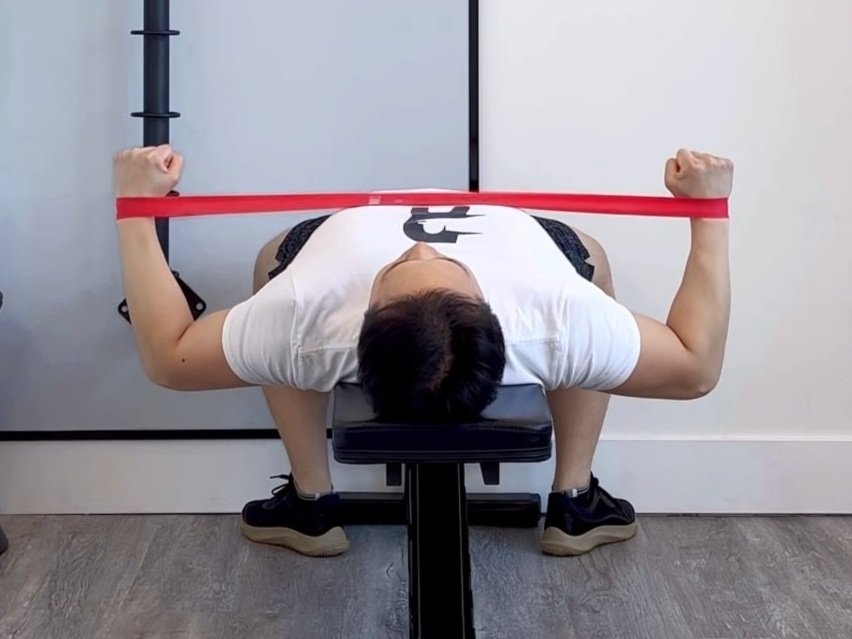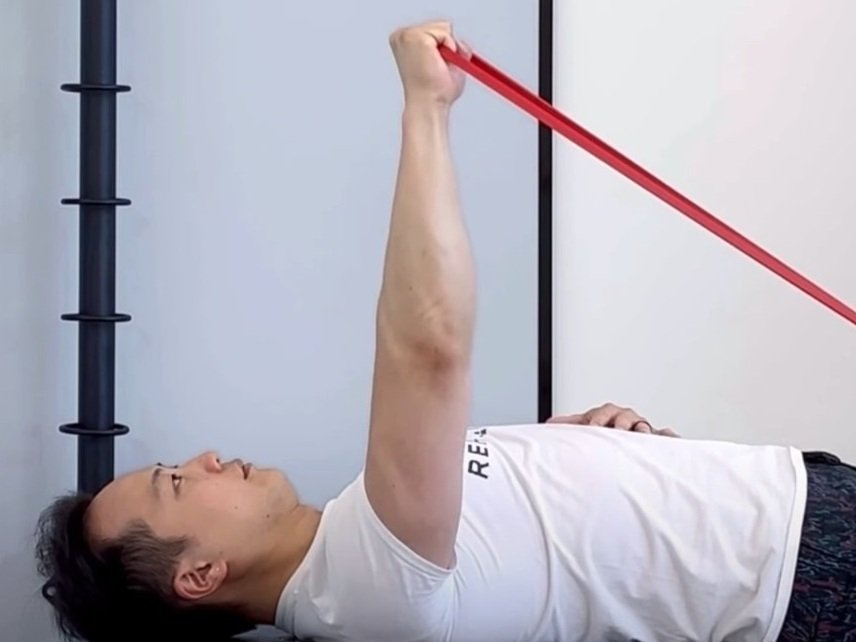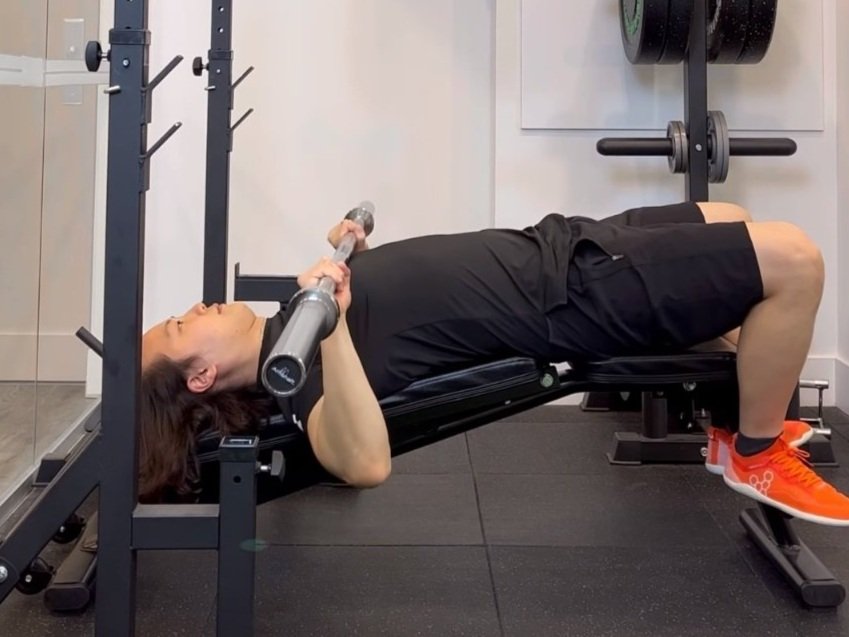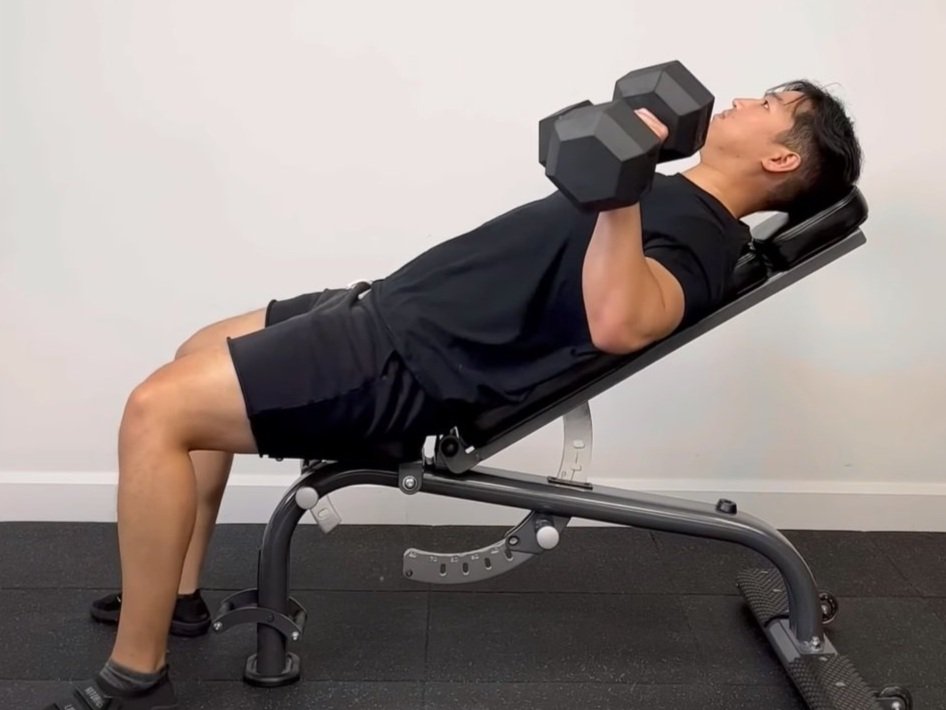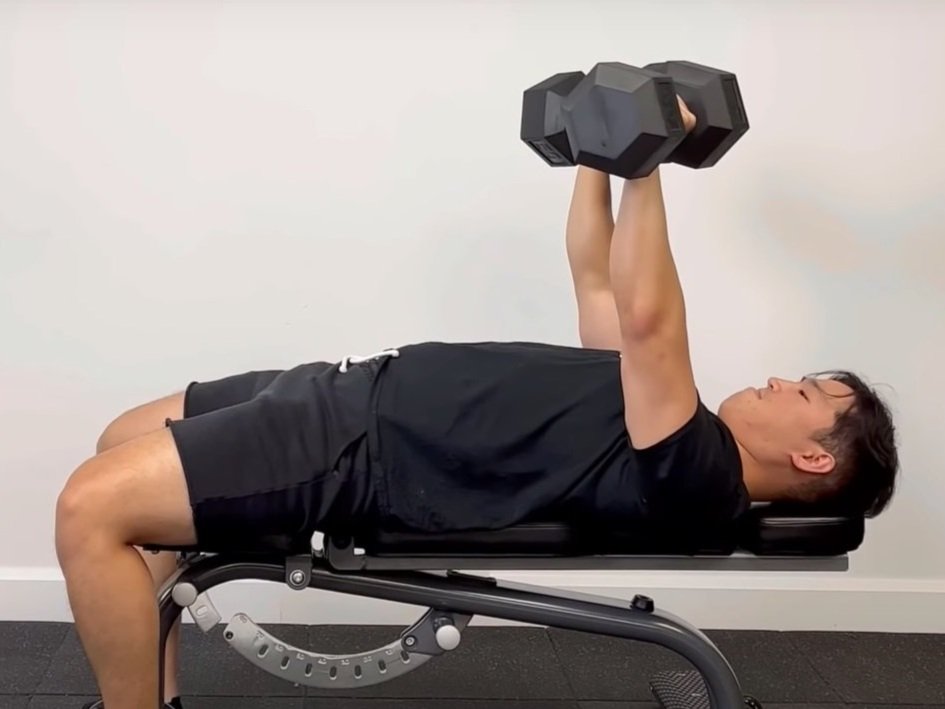Physiotherapy for Bench Press injuries
Common bench press shoulder injuries
Learn about some common injuries related to the bench press.
Can bench press lead to a shoulder injury?
One of the most common weightlifting injuries is shoulder pain, and bench pressing can be a major contributor to this problem. When you bench press, your arms are in a fixed position and your shoulders have to bear the brunt of the load. This can put a lot of strain on the front of your shoulder, leading to pain and inflammation. In some cases, this can even lead to a rotator cuff injury. If you're bench pressing regularly, it's important to be aware of these risks and take steps to minimize them.
If you're someone who strength trains regularly, the bench press is likely a staple in your workout routine. Unfortunately, this popular exercises comes with the risk of injuring your shoulder, as the position of your arm during the move puts a lot of stress on the joint. Fortunately, physiotherapy can help! With proper care, you can avoid shoulder injuries and enjoy a healthy weightlifting lifestyle.
1. Rotator Cuff Tears
The rotator cuff is a group of four muscles and tendons that attach the shoulder blade to the upper arm bone. This muscle group helps lift your arm. A rotator cuff tear is a common injury caused by repetitive overhead motions or a sudden fall onto an outstretched arm. Symptoms include pain and weakness in the shoulder. A physiotherapist can develop a treatment plan to improve range of motion and strength. Surgery may also be required in some cases. To learn more about rotator cuff muscles click here to read more.
2. Shoulder Impingement
Shoulder impingement occurs when the tendons of the rotator cuff muscles become irritated or inflamed. This condition is often caused by repetitive overhead motions or incorrect form during bench pressing. Symptoms include pain and weakness in the shoulder, as well as difficulty sleeping on the affected side. A physiotherapist can provide treatments to reduce inflammation and pain, as well as stretching and strengthening exercises to improve mobility. Surgery may be necessary in severe cases. To learn more about shoulder impingement click here.
3. AC Joint Sprains
The acromioclavicular (AC) joint is where your clavicle (collarbone) meets your acromion (the bony projection off the top of your shoulder). An AC joint sprain occurs when the ligaments that connect these bones are stretched or torn. This injury is often caused by falling directly onto the shoulder or outstretched arm. Symptoms include pain and tenderness at the site of injury, as well as swelling and bruising. A physiotherapist can provide treatments to reduce pain and swelling, as well as exercises to improve range of motion and prevent further injury. Surgery may be necessary in some cases. To learn more about AC joint sprains click here to learn more.
4. Osteolysis of the Distal Clavicle
One of the most common shoulder injuries is osteolysis of the distal clavicle, which usually occurs as a result of bench pressing or shoulder pressing. This condition is characterized by the deterioration of the bone at the end of the clavicle, and it can cause significant pain in the front of the shoulder. This condition is characterized by a loss of bone mass in the affected area. If you experience front shoulder pain during or after bench pressing, it is important to see a medical professional for an evaluation. Left untreated, this condition can lead to serious problems such as chronic pain and mobility issues.
5. Biceps Tendinitis
Biceps tendinitis is a condition that can be caused by repetitive motions, such as those often used in bench pressing. This may occur as the long head of biceps tendon is used as a weak shoulder flexor during the bench press exercise. This condition results in inflammation of the biceps tendon, which connects the biceps muscle to the shoulder. Symptoms of biceps tendinitis include pain and tenderness in the front of the shoulder, as well as weakness or stiffness in the arm. If left untreated, biceps tendinitis can lead to a tear in the tendon. Treatment for this condition typically includes rest, ice, and physical therapy. Surgery is rarely necessary. However, if bench pressing is the cause of your biceps tendinitis, you may need to find a regressed exercise to avoid further injury and get your form evaluated by a professional. To read more about biceps tendinitis click here to read more.
6. Pectoralis Strain
Pectoralis strain is a common shoulder injury, particularly among weightlifters and other athletes who bench press. The pectoralis muscle is located in the front of the shoulder, and when it's overused or strained, it can cause pain in the front of the shoulder and upper arm. Pectoralis strain is often caused by bench pressing with incorrect form, using too much weight, or not warming up properly before exercise. Treatment for pectoralis strain typically includes massage therapy, exercise rehabilitation and physiotherapy. Severe cases may require surgery. Prevention of pectoralis strain includes using proper form when bench pressing and gradually increasing the amount of weight you lift. Warming up properly before exercise also helps to prevent pectoralis strain. To learn more about pectoralis strains click here to read more.
7. Labral Tear
A labral tear is a shoulder injury that can occur when you bench press. It's a tearing of the cartilage that surrounds the shoulder socket, and it can cause front shoulder pain. The pain may radiate down your arm, and you may feel a popping or grinding sensation when you move your shoulder. A labral tear can also make it difficult to lift your arm or rotate your shoulder. If you think you may have a labral tear, see your doctor for an evaluation. You may need imaging tests, such as an MRI, to confirm the diagnosis. Treatment typically involves rest, ice, and physical therapy. Surgery is sometimes necessary to repair the tear.
8. Coracobrachialis Strain
The bench press is a classic move that targets the chest and shoulder muscles. However, it can also put strain on the coracobrachialis, a small muscle located in the front of the shoulder. This muscle helps to stabilize the shoulder joint, and when it's overworked, it can lead to shoulder pain and injury. The coracobrachialis may get strained as it’s primary function is to horizontally adduct the shoulder and to flex the shoulder, both of which are movements needed to complete a bench press.
When you strain your coracobrachialis, it's important to see a physiotherapist as soon as possible. They will help you determine the extent of your injury and create a rehabilitation plan that will help you heal properly and prevent further injury. The physiotherapist may also modify your bench press exercise to protect your coracobrachialis while you continue to build strength in your chest and arms. With proper treatment, most people recover fully from a coracobrachialis strain and can return to their regular activities within a few weeks. However, if the physiotherapist suspects a more serious injury, they may refer you to a doctor for further testing.
How do you recover from a bench press shoulder injury?
If you're experiencing shoulder pain when performing the bench press, there are a few things you can do to ease the discomfort. First, try massage therapy. A massage can help to loosen up the muscles and tissue around the shoulder, making it easier to move your arm. You may also want to try a modification of the bench press. A sports massage therapist can help you with finding a bench press exercise regression so that you can maintain your activity levels while you are injured. This will take some of the pressure off of your shoulders and help to reduce the pain. With a little bit of effort, you should be able to find a way to perform the bench press without experiencing any pain.
Chiropractors and physiotherapists can help to assess and treat shoulder pain from bench pressing. They will first look at your posture and alignment to see if there is any problems with how you are positioned on the bench. They may also palpate (feel) around the shoulder joint to see if there is any tenderness or pain in specific areas. Once they have determined the source of the pain, they will develop a treatment plan to address it. This may involve chiropractic adjustments, deep tissue massage, joint mobilization, and stretches or exercises to improve range of motion and reduce pain. If you are experiencing shoulder pain while bench pressing, make an appointment with a chiropractor or sports physiotherapist to get an assessment and treatment plan. To book in with a qualified Rehab Hero clinician click the button below:
Conclusion:
If you experience any pain or discomfort in your shoulder while bench pressing, it's important to see a physiotherapist, chiropractor or massage therapist for an assessment right away. With early diagnosis and treatment, most injuries can be treated without surgery. However, if you wait too long, you may require more invasive treatments such as surgery or injections. Don't let a bench press injury sideline you from your workout routine—get help from a professional today!
FAQ
-
A rotator cuff injury can take several weeks or even months to heal completely. The first step is to see a chiropractor, physiotherapist, or other medical professional to get a diagnosis and develop a treatment plan. Once the initial healing has occurred, you will likely need to do physical therapy exercises to restore strength and range of motion in your shoulder. You may also need to see a massage therapist or chiropractor for ongoing treatments.
-
If you're looking for someone to assess your bench press form, there are a few different professionals who can help. Chiropractors, physiotherapists, and massage therapists all have the training and experience to spot improper form and offer suggestions on how to correct it. In addition, personal trainers and strength coaches are often well-versed in the proper technique for the bench press and can offer good advice on how to improve your form. Ultimately, the best person to assess your form is someone who you feel comfortable working with and who you trust to give you honest feedback. So take some time to research your options and find the professional that's right for you.
-
If you've recently injured your back or shoulders, you may be wondering how soon you can start bench pressing again. The answer will depend on the severity of your injury and how well you recover. If you've only strained a muscle, you may be able to start lifting weights within a week or two. However, if you've suffered a more serious injury, it may take several weeks or even months before you're ready to bench press again. In either case, it's important to consult with a chiropractor, physiotherapist, or massage therapist to ensure that you're healed enough to start lifting weights safely. With their help, you'll be back on the bench in no time.





